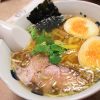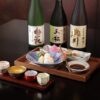What do “amai” and “amakunai” mean? あまい あまくない

Ama-i!
あまーい(甘ーい!)
Waki ga amai!
脇が甘い!
Yononaka sonna ni amakunai! '
世の中そんなに甘くない!
The words “amai(あまい、甘い)" and “amakunai(あまくない、甘くない)" often appear in Japanese sentences.
If you are studying Japanese, it is recommended to learn these two words as a set.
What do “amai” and “amakunai” mean?
“Amai(あまい、甘い)" mainly means “sweet" or “sugary".
It is used besides “taste" as follows.
“Lenient”, “indulgent”, “being soft on”, “permissive”, “having a soft spot on”, “too optimistic”, “think somebody [something] easy to deal with”, “loose”, “not enough”.
Since this word is an adjective, its negative form changes to “amakunai(あまくない、甘くない)".
The following is an example sentence of “amai" for taste.
Hachimitsu wa totemo amai. (basic, casual)
はちみつはとても甘い。
Hachimitsu wa totemo amai desu. (polite)
はちみつはとても甘いです。
Honey is very sweet.
Kono keeki wa amasugiru. (basic, casual)
このケーキは甘すぎる。
Kono keeki wa amasugimasu. (polite)
このケーキは甘すぎます。
Honey is very sweet.
Kono orenji wa amakunai. (basic, casual)
このオレンジは甘くない。
Kono orenji wa amaku nai desu. (polite)
このオレンジは甘くないです。
Kono orenji wa amaku arimasen. (polite)
このオレンジは甘くありません。
This orange is not sweet.
Kinou no osake wa amakatta ne. (casual)
昨日のお酒は甘かったね。
Kinou no osake wa amakatta desu. (polite)
昨日のお酒は甘かったです。
Yesterday’s sake was sweet.
Uwa–, ama. (casual)
うわー、あまっ。
Uwa–, amee. (casual)
うわー、あめぇ。
Wow, it is sweet.
Nanikore amasugi. (casual)
なにこれ甘すぎ。
Oh, it’s too sweet.
Amai mono wa nigate desu.
甘いものは苦手です。
I don’t eat sweets.
Motto amakattara yokatta noni.
もっと甘かったらよかったのに。
Motto amakereba yokatta noni.
もっと甘ければよかったのに。
I wish I could be sweeter.
Donna ni amakutemo watashi wa tabeteshimai masu.
どんなに甘くても私は食べてしまいます。
No matter how sweet I will eat.
Ano keeki amasou dane. (casual)
あのケーキ甘そうだね。
Ano keeki wa amasou desu ne. (polite)
あのケーキは甘そうですね。
That cake looks sweet.
Phrases using “amai"
The following are commonly used phrases.
Amai mono niwa mega arimasen.
Amai mono niwa mega arimasen.
甘いものには目がありません。
A literal translation of this sentence is “Sweets have no eyes" or “I lose eyes to sweets". This sentence has no subject, but it is clear that “I" is the subject.
The meaning is “I love sweets".
These days, young people and some adults call sweet foods or desserts “suiitsu (スイーツ:sweets)."
Until about ten years ago, they referred to such foods as “dezaato(デザート:desserts)," “okashi(おかし、お菓子:sweets)," and “amai mono(あまいもの、甘いもの:sweets)."
Around 2006, TV celebrities began calling desserts “suiitsu(スイーツ:sweets)" in their programs. And it spread throughout the country.
Also, it was a common image in Japan that men are not good at sweets and do not eat any in public, but recently young boys about junior high school students and high school students talk about “sweets" and eat some happily in public places such as cafes or restaurants.
Yo no naka sonna ni amakunai
Yo no naka sonna ni amakunai
世の中そんなに甘くない
Life is not that easy.
“Yo no naka” means “life”, “society”, and “world”.
Kimi no kangae ga asahaka dane. Yo no naka sonna ni amaku nai yo.
君の考えが浅はかだね。世の中そんなに甘くないよ。
Your thoughts are shallow. You are too optimistic.
Sono teido no benkyou de shiken ni goukaku suru to omotte ita no? Yo no naka sonna ni amaku nai yo.
その程度の勉強で試験に合格すると思っていたの?世の中そんなに甘くないよ。
Did you expect to pass the exam after studying that much? Life is not that easy.
Kangae ga amai
Kangae ga amai
考えが甘い
Being unrealistic, naive, too optimistic.
“Kangae" means “idea", “thinking", “thought", “intension", “opinion".
Ichinichi ichi jikan teido no renshuu de ookesutora ni haireru wake naidesho. Kangae ga amai yo!
1日1時間程度の練習でオーケストラに入れるわけないでしょ。考えが甘いよ!
You won’t be accepted by an orchestra with about one hour of practice a day. You are naive!
Watashi no haha wa soto de hataraita koto ga naikara shukoshi kangae ga amai.
私の母は外で働いたことがないから少し考えが甘い。
My mother has never worked outside, so she is a little naive.
Tsume ga amai
Tsume ga amai
詰めが甘い
The word comes from the term “syougi(将棋)", a Japanese chess game.
Spoiling something at the last stage.
Ruining what is likely to succeed as inappropriately addressing the last phase of things.
Kono genkou kakunin shita no? Goji datsuji ga arukara tsukaenai. Tsume ga amai yo.
この原稿確認したの?誤字脱字があるから使えない。詰めが甘いよ。
Did you check this manuscript? It cannot be used because of typos. This could have been done better.
Renshuu shitandakedo saigo de te wo nuiteshimatta. Tsume ga amakatta.
練習したんだけど最後で手を抜いてしまった。詰めが甘かった。
I did practice but I just got relaxed at the last moment. I should have made more effort.
Waki ga amai
Waki ga amai
脇が甘い
It means a weak defense.
It was originally a sumo term. “Waki” means “a side of the body”.
In a sumo match, if the side of the body is empty, the opponent will grab the “mawashi (a sumo wrestler’s loincloth)". When that happens, it becomes difficult to defend.
There is also the idiom “waki wo katameru" which has the opposite meaning. “Katameru" is to solidify something.
Mada mada amai na
Mada mada amai na
まだまだ甘いな
You still need more work.
It’ll take more time.
You still have a ways to go.
Kare no ensou wo kiita kedo … madamada amai na.
彼の演奏を聞いたけど・・・まだまだ甘いな。
I heard his performance … he needs more practice.
Amaku miru
Amaku miru
甘く見る
「Making light of somebody」、「見下げる」、「underrating」
Watashi wa kanojo no sainou wo amaku miteita.
私は彼女の才能を甘く見ていた。
I underrated her talent.
Kodomo dakara to itte amaku miteiru to itai me ni aimasu yo.
子供だからといって甘く見ていると痛い目に合いますよ。
Don’t underestimate just because he is a child. You might get into trouble.
Amai shiru wo suu
Amai shiru wo suu
甘い汁を吸う
Using people to make a profit for yourself without making any effort.
Ato kara yatte kite amai shiru wo suouttatte sou wa sasenai yo.
後から来て甘い汁を吸おうったってそうはさせないよ。
I won’t let you come later and get onto good things.
Shitsuke ga amai
Shitsuke ga amai
しつけが甘い
“Spoiling", “pampering"
Amakara
Amakara
甘辛
A taste that combines sweet and salty flavors.
In Japan, it usually refers to a combination of sugar and soy sauce.
Many of the boiled Japanese dishes are “amakara", which goes well with meat and fish.
Because it goes well with rice, many Japanese like this taste.
Examples: Yakitori(焼き鳥) sauce, eel kabayaki(鰻のかば焼き), boiled fish(nizakana、煮魚), etc.
The sauce of mitarashi dango(みたらし団子) is also “amakara" of sugar and soy sauce.
Amatou
Amatou
甘党
Sweet tooth
Watashi, amatou nandesu.
私、甘党なんです。
I love sweets.
Kangen
Kangen
甘言
flattery、cajoling、sweet talk
Kanbi
Kanbi
甘美
Kanbi na kaori
甘美な香り
sweet scent
Kanbi na kuramono
甘美な果物
nectarous fruits
Jinsei wa kanbi da.
人生は甘美だ。
Life is sweet.
Amakuchi
Amakuchi
甘口
The taste is sweet or mild.
For example, Japanese curry cubes often have spicy, medium and mild tastes.
For example, “a sweet wine", “a sweet sake", “mild miso."
Amazuppai
Amazuppai
甘酸っぱい
bittersweet
sour-sweet
Amattarui
Amattarui
甘ったるい
too sweet
sugary
sweet talk
a sentimental feeling
















